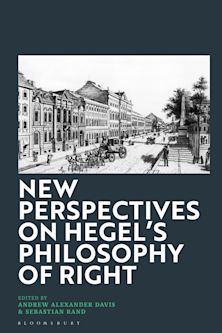- Home
- ACADEMIC
- Philosophy
- Nineteenth-Century Philosophy
- Freedom and Nature in Schelling's Philosophy of Art
Freedom and Nature in Schelling's Philosophy of Art
This product is usually dispatched within 3 days
- Delivery and returns info
-
Free CA delivery on orders $40 or over
You must sign in to add this item to your wishlist. Please sign in or create an account
Description
Schelling's philosophy of art is the 'keystone' of the system; it unifies his idea of freedom and his philosophy of nature. Schelling's idea of freedom is developed through a critique of the formalism of Kant's and Fichte's practical philosophies, and his nature-philosophy is developed to show how subjectivity and objectivity emerge from a common source in nature. The philosophy of art plays a dual role in the system. First, Schelling argues that artistic activity produces through the artwork a sensible realization of the ideas of philosophy. Second, he argues that artistic production creates the possibility of a new mythology that can overcome the socio-political divisions that structure the relationships between individuals and society. Shaw's careful analysis shows how art, for Schelling, is the highest expression of human freedom.
Table of Contents
1. Dogmatism, Criticism, and Art
2. From Nature-philosophy to the 'Mythology of Reason'
3. Artistic Activity and the Subversion of Transcendental Idealism
4. Substance and History: Absolute Idealism and Art
5. From Art and Nature to Freedom and Revelation
Conclusion
Bibliography
Index
Product details
| Published | Sep 27 2012 |
|---|---|
| Format | Paperback |
| Edition | 1st |
| Extent | 192 |
| ISBN | 9781441117328 |
| Imprint | Continuum |
| Dimensions | 234 x 156 mm |
| Series | Continuum Studies in Philosophy |
| Publisher | Bloomsbury Publishing |
About the contributors
Reviews
-
"Philosophy of art provides a privileged opening onto the complexities and metaphysical dimensions of Schelling's system, an amorphous construction that extends through the diverse productions of the philosopher's lifetime. Fittingly, Devin Shaw has adopted a genetic approach, following the philosopher's virtually inchoate accounts of art in his early writings, through its explicit embodiment in his philosophy of identity, to the later writings on art, which, because of their apparently marginal character, are usually overlooked. Dr. Shaw's original and important contribution shows how Schelling's philosophy of art is informed by his earlier philosophy of nature, while anticipating his later work on the metaphysics of freedom and his crepuscular writings on mythology." - Jeffrey Reid, Associate Professor, Philosophy, University of Ottawa, Canada
-
Shaw has given us a thoughtful retrieval of the problem of art that invites us into the epicenter of Schelling's project.
Notre Dame Philosophical Reviews
-
'Shaw's careful analysis of the various ways in which art is significant for Schelling provides a sorely-needed guide for readers of Schelling's difficult work.'
Symposium



































